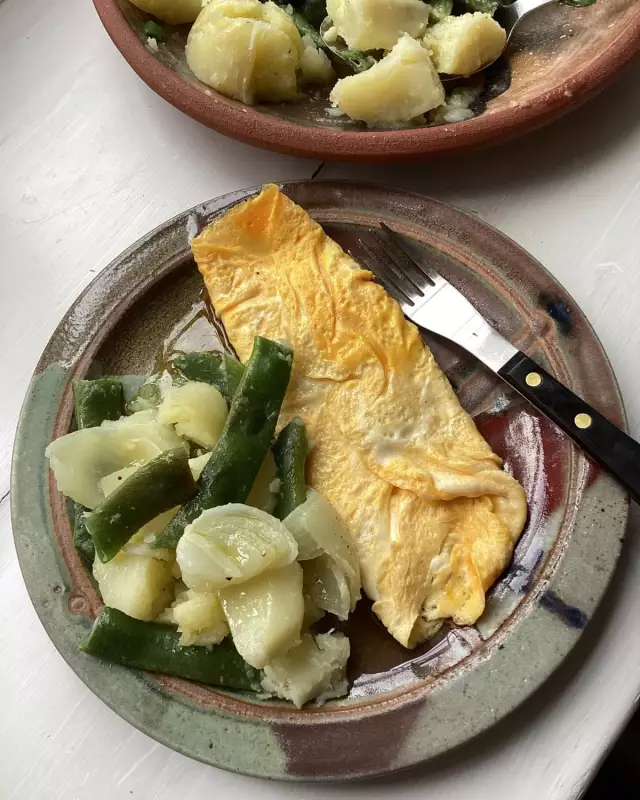
As the late summer sun bathes Britain, the quest for simple, vibrant suppers that celebrate the season's best produce begins. Guardian columnist and Rome-based food writer Rachel Roddy offers the perfect solution with her classic Pappanozza—a humble yet spectacularly flavourful Italian dish that transforms a few cupboard staples into a meal that sings.
More than a mere potato salad, Pappanozza is a celebration of texture and contrast. It brings together waxy potatoes, tender green beans, and sweet red onions, uniting them in a sharp, garlicky red wine vinegar dressing. The name itself, as Roddy explains, hints at its soft, almost 'mushy' consistency, which is key to its comforting appeal.
The Simple Art of Pappanozza
The beauty of this recipe lies in its straightforward, one-pan approach. Roddy's method is one of elegant simplicity:
- Cook the Base: Thinly sliced potatoes and red onions are gently simmered together until the potatoes are tender and the onions have softened into sweetness.
- Add Green Beans: Sliced green beans join the pan for the final few minutes, cooking until they lose their raw edge but retain a vital crunch.
- Create the Dressing: The pan is drained, and the warm vegetables are immediately dressed with a vigorous mix of extra virgin olive oil, red wine vinegar, a crushed garlic clove, and a generous seasoning of salt and pepper.
- Rest and Serve: The dish is then left to rest for at least 20 minutes. This crucial step allows the flavours to meld and the vegetables to soak up the sharp, aromatic dressing, achieving its characteristic soft texture.
Why This Dish is a Summer Essential
This Pappanozza recipe is a masterclass in creating maximum flavour from minimal ingredients. It is naturally vegetarian and can easily be made vegan. Its versatility is a major strength; it’s substantial enough to be a main course yet works beautifully as a side dish for grilled fish or meats. It’s the ideal make-ahead meal, tasting even better the next day after the flavours have fully developed.
Roddy’s writing transports you to her Roman kitchen, making this more than just a set of instructions—it's an invitation to experience a slice of Italian culinary tradition. This is the kind of no-fuss, high-reward cooking that defines the best of summer eating: fresh, fast, and utterly delicious.





